Back in the day, television specials were a big deal. They weren’t just episodes of a show; they were events, drawing families to the living room for something unique. However, as the years have passed, many of these specials have fallen out of favor, and it’s easy to see why. Some were products of their time, featuring humor, themes, or portrayals that wouldn’t fly in today’s more aware and inclusive culture. These ten forgotten TV specials give us a fascinating glimpse into the past—when what was acceptable on-screen was very different from what is today. Let’s revisit them and consider why they’d be unlikely to make it onto a primetime schedule now.
1. The Harlem Globetrotters on Gilligan’s Island (1981)
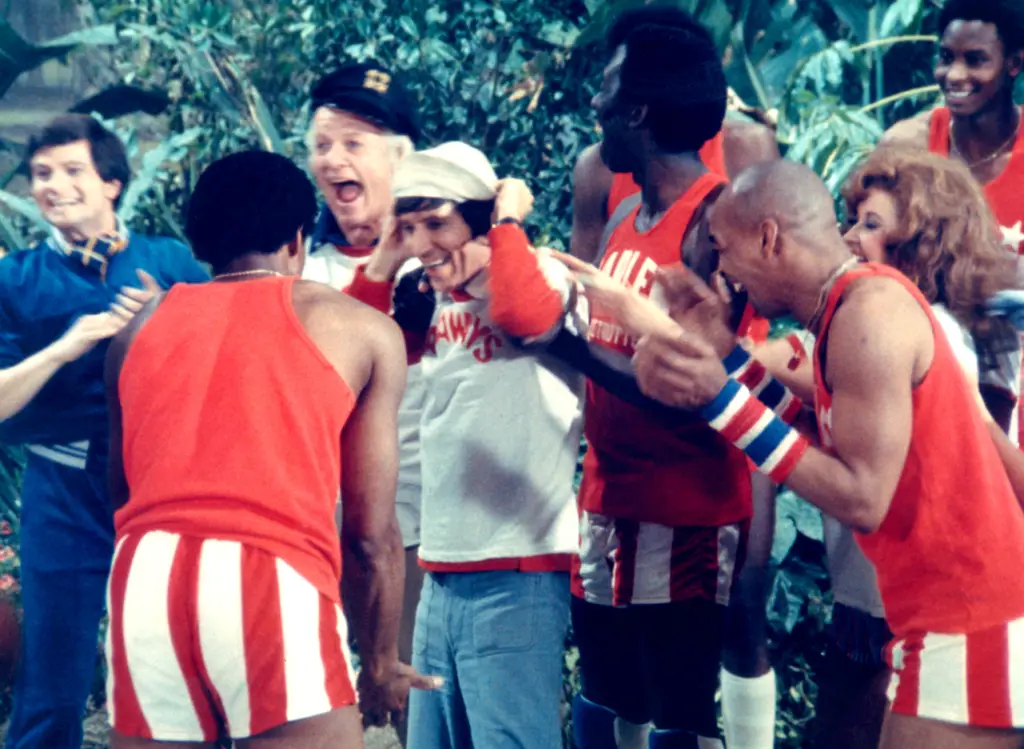
In this bizarre crossover, the lovable castaways of Gilligan’s Island teamed up with the Harlem Globetrotters for a special that was equal parts surreal and problematic. The premise involved the Globetrotters crash-landing on the island, just in time to help Gilligan and friends save it from a group of greedy developers. While the basketball hijinks were entertaining, the humor often relied on outdated racial stereotypes and slapstick tropes that wouldn’t be acceptable today.
One particularly uncomfortable aspect was how the Globetrotters were portrayed as almost superhuman athletes, with their characters reduced to their basketball skills rather than being fully fleshed-out individuals. It’s a stark contrast to today’s emphasis on diversity and nuanced representation in media. Despite its issues, the special remains a curious oddity for fans of both Gilligan’s Island and the Harlem Globetrotters, serving as a reminder of how television has evolved in depicting humor and inclusivity.
These specials, strange and often outdated as they may be, offer a fascinating snapshot of the television landscape from another era. While they may no longer align with modern sensibilities, revisiting them can still provide insight into how far entertainment—and society—has come.
2. Bob Hope’s Bicentennial Bash (1976)

Bob Hope was known for his quick wit and topical humor, but his Bicentennial Bash—a variety special celebrating America’s 200th birthday—featured skits and jokes that reflected the outdated norms of the time. The special included a parade of celebrities dressed in “historical” costumes, some of which were culturally insensitive by today’s standards.
One particularly problematic skit featured Hope and guests in exaggerated Native American attire, making jokes that trivialized Indigenous cultures. While it was intended as lighthearted fun, it would now be seen as tone-deaf and disrespectful. Despite these missteps, the special captured the spirit of the era, blending patriotism with entertainment, and remains a fascinating—if flawed—artifact of its time.
3. The Star Wars Holiday Special (1978)
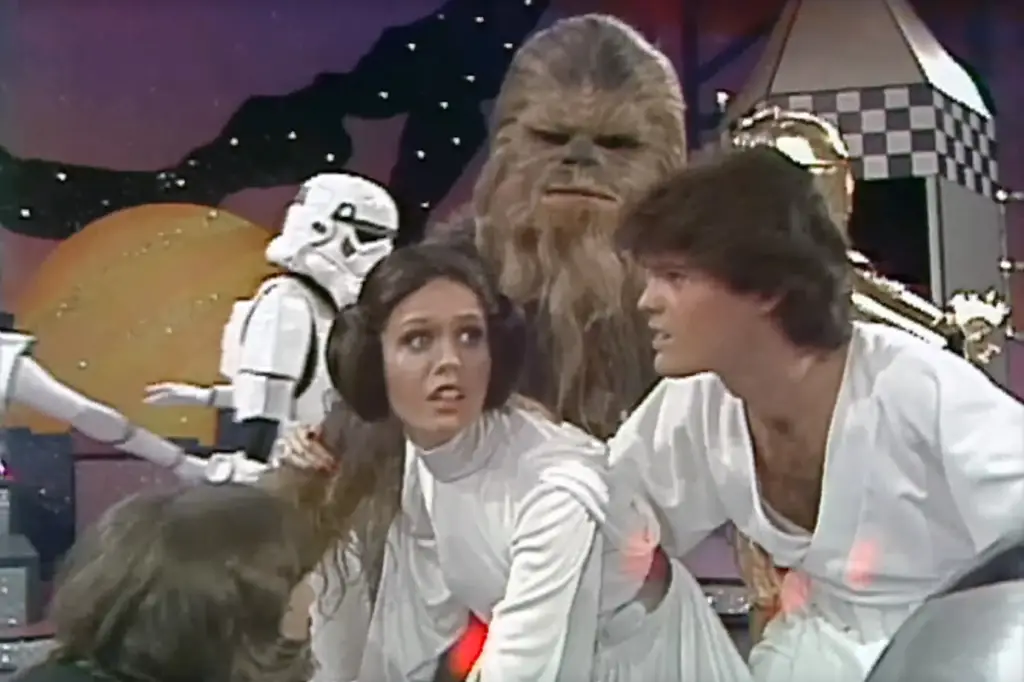
This infamous special has become legendary for all the wrong reasons. Featuring the cast of the original Star Wars movie alongside bizarre musical numbers and odd cameos, the holiday special was a disjointed mess that even George Lucas disavowed. However, one of its most glaring issues today is its outdated gender roles and weirdly uncomfortable humor.
For example, a segment featuring Chewbacca’s family includes jokes at the expense of Chewbacca’s wife, Malla, painting her as the stereotypical nagging homemaker. There’s also a cringeworthy sequence involving a virtual reality “fantasy” that borders on inappropriate. It’s no wonder this special has been buried for decades, though fans still pass around bootleg copies for a laugh—and a reminder of just how weird TV could get.
4. The Paul Lynde Halloween Special (1976)
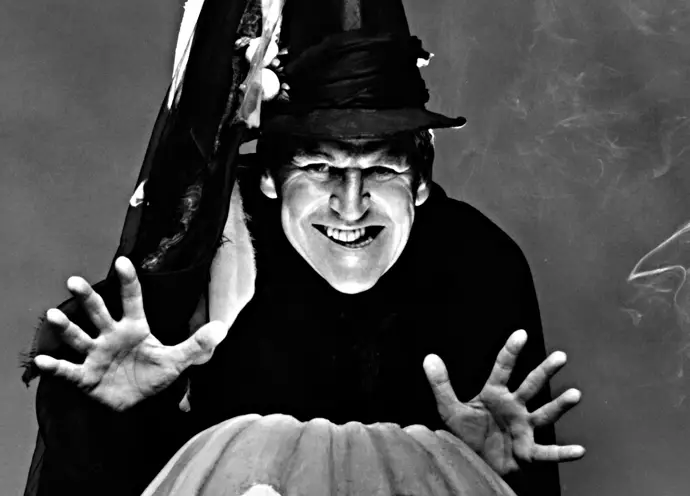
Paul Lynde was a comedic icon, but his Halloween special was a head-scratcher, even by ’70s standards. Featuring flamboyant costumes, campy humor, and a series of guest stars like KISS and Margaret Hamilton, it veered between spooky fun and outright baffling. The humor often relied on Lynde’s trademark snark, which sometimes crossed into offensive territory.
One particularly awkward segment involved stereotypes about witches, blending them with outdated gender jokes. While it was meant to be playful, it came across as tone-deaf even then. Today, this campy special might still have a cult following, but it’s unlikely any network would air it without some heavy editing.
5. The Brady Bunch Variety Hour (1977)
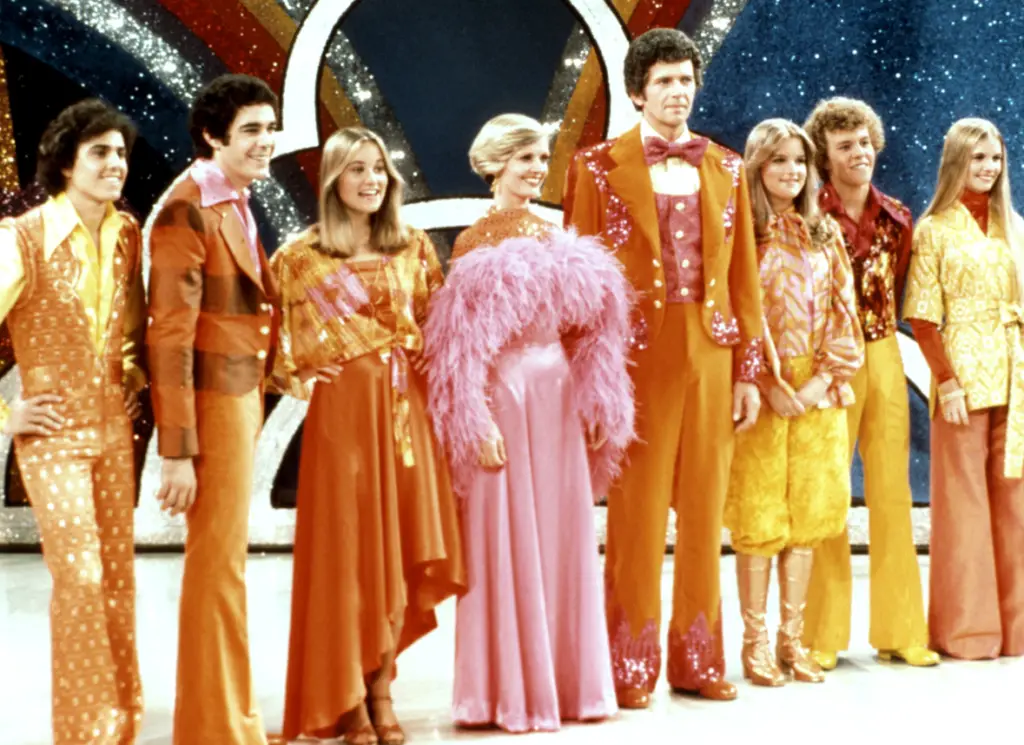
After their beloved sitcom ended, the Brady family returned in a variety show that was heavy on glitter, cringe-worthy musical numbers, and painfully cheesy comedy. The problem wasn’t just the over-the-top production; it was the humor, which leaned heavily on sexist jokes and outdated family dynamics.
One recurring gag featured Carol Brady trying to “be one of the boys,” only to be mocked by her husband and sons for stepping outside traditional gender roles. The jokes, while meant to be lighthearted, feel mean-spirited and out of touch by today’s standards. Though the special is remembered fondly by some for its sheer absurdity, it’s hard to imagine anyone greenlighting such a tone-deaf project now.
6. A Very Sonny & Cher Christmas (1973)
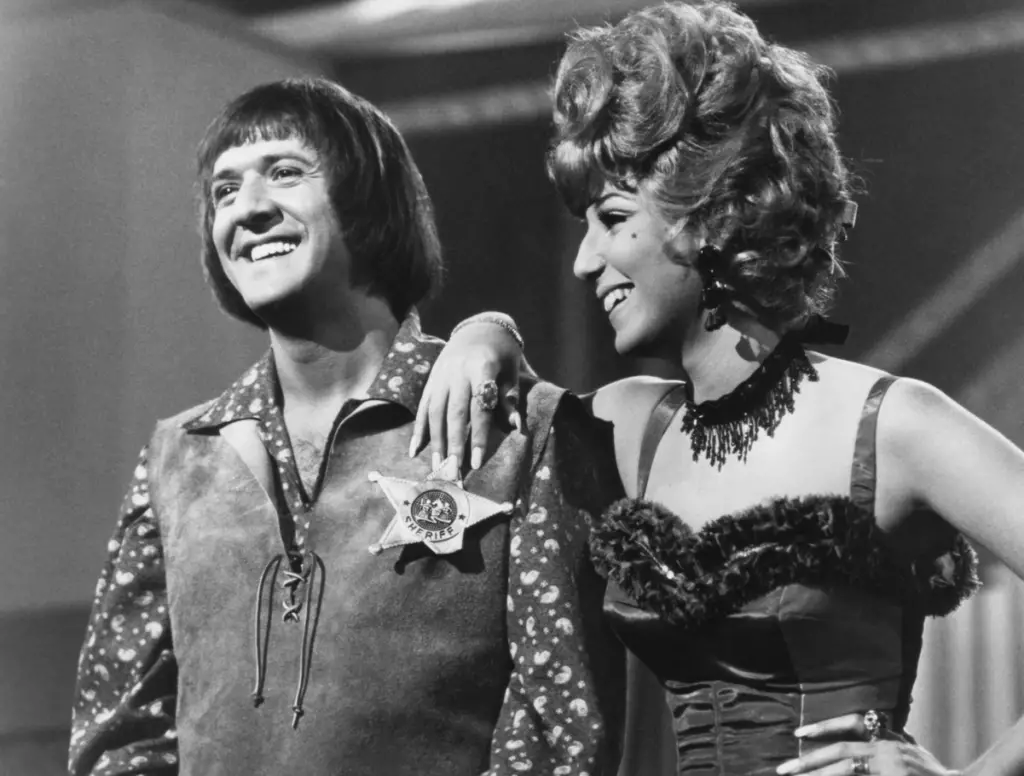
Sonny and Cher’s Christmas special was filled with music and laughs, but it also featured humor that wouldn’t fly today. Several skits relied on exaggerated ethnic accents and stereotypes, which were commonplace in comedy at the time but would now be considered offensive.
One skit, in particular, involved Sonny impersonating a foreign exchange student with a heavy, exaggerated accent, complete with jokes about his broken English. While it was played for laughs, it’s the kind of humor that audiences today would find cringeworthy rather than funny. Despite these missteps, the duo’s undeniable chemistry and musical performances remain highlights of the special.
7. The Dean Martin Celebrity Roast: Sammy Davis Jr. (1975)
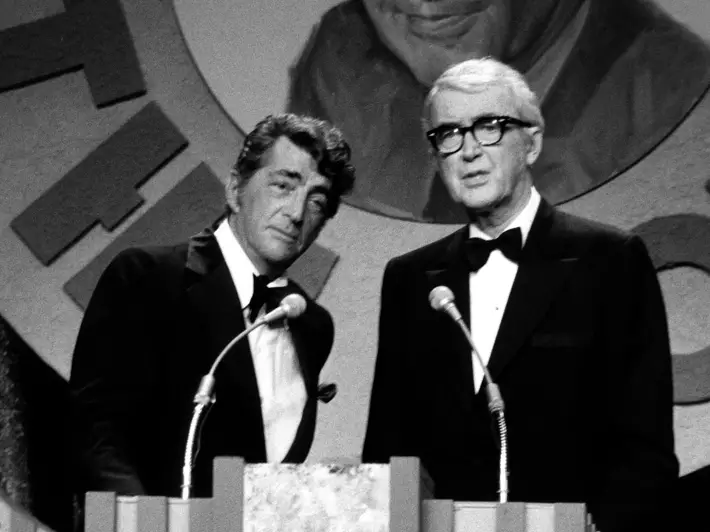
The Dean Martin Celebrity Roasts were known for their sharp humor and celebrity-packed guest lists, but the roast of Sammy Davis Jr. crossed into territory that would be unacceptable today. Many of the jokes targeted Davis’s race and religion, relying on offensive stereotypes that were uncomfortable even at the time.
While Davis himself was a good sport about it, the special highlights how much comedy has evolved. Today, such jokes would rightfully be criticized for perpetuating harmful stereotypes. Still, the roast is a fascinating glimpse into the era’s humor—and a reminder of how far we’ve come in understanding the impact of words.
8. Bing Crosby’s Merrie Olde Christmas (1977)
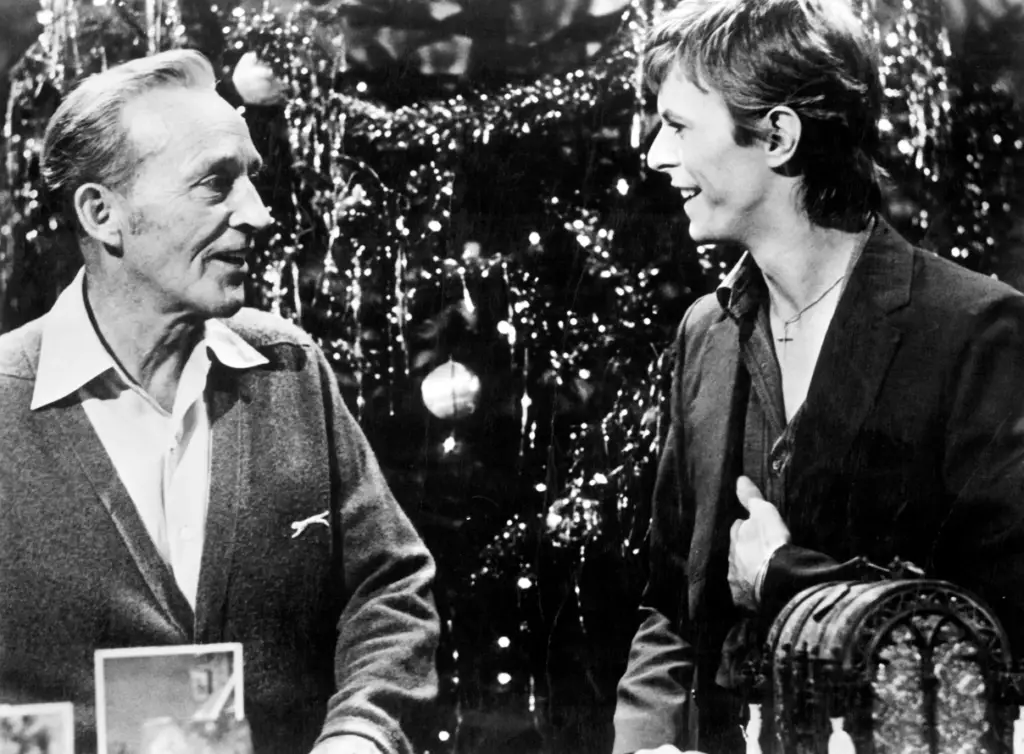
This holiday special is best remembered for the surreal duet between Bing Crosby and David Bowie, but much of the rest of the special has aged poorly. Set in an “olde English” manor, it featured skits and musical numbers that relied on outdated class stereotypes and some questionable humor.
One segment, for instance, included jokes about gender roles that feel awkwardly regressive now. While the special aimed for charm and nostalgia, much of it feels stilted and out of step with modern sensibilities. That said, the Crosby-Bowie duet remains an iconic moment that’s still worth revisiting.
9. Rudolph and Frosty’s Christmas in July (1979)
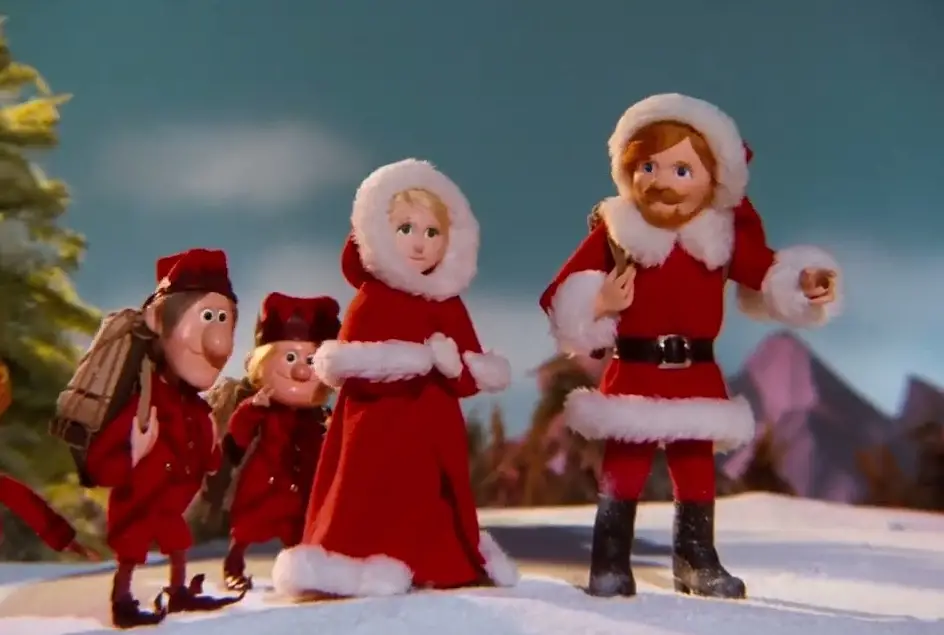
This oddball holiday special brought two beloved characters together but stumbled with a convoluted plot and questionable themes. While it was meant for children, it included surprisingly dark elements, like Frosty contemplating his mortality if he melts. There were also some outdated gender tropes, particularly in how female characters were sidelined.
Despite its flaws, the special remains a nostalgic memory for those who grew up with it. However, its tonal inconsistencies and outdated ideas make it unlikely to resonate with today’s audiences in the same way. It’s a curious relic of a time when holiday specials weren’t afraid to get weird.
10. The Osmond Family Christmas Special (1980)
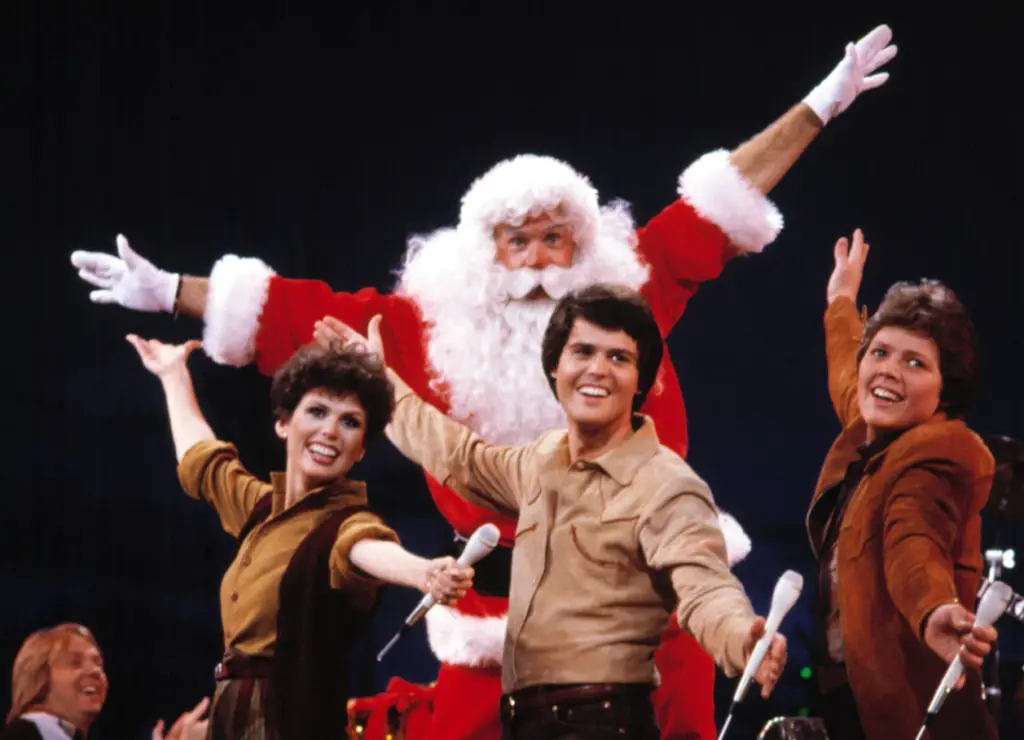
Donny and Marie Osmond were at the height of their fame when this tropical Christmas special aired, but its mix of cheesy humor and cultural insensitivity has not aged well. Much of the humor relied on stereotypes about Hawaiian culture, with skits and songs that felt more like caricature than celebration.
One particularly cringeworthy moment involved Donny attempting to hula dance while making jokes about the “exotic” locals. While the special was meant to be a lighthearted holiday treat, its reliance on stereotypes would make it a tough sell today. Still, for fans of the Osmonds, it’s a nostalgic reminder of their heyday.
These TV specials remind us of how much our culture has changed—and how television, as a reflection of its time, has had to evolve with it. While they may not hold up to today’s standards, they offer a fascinating look at the past, for better or worse. Revisiting them can be a bittersweet journey, sparking nostalgia while highlighting just how far we’ve come.


